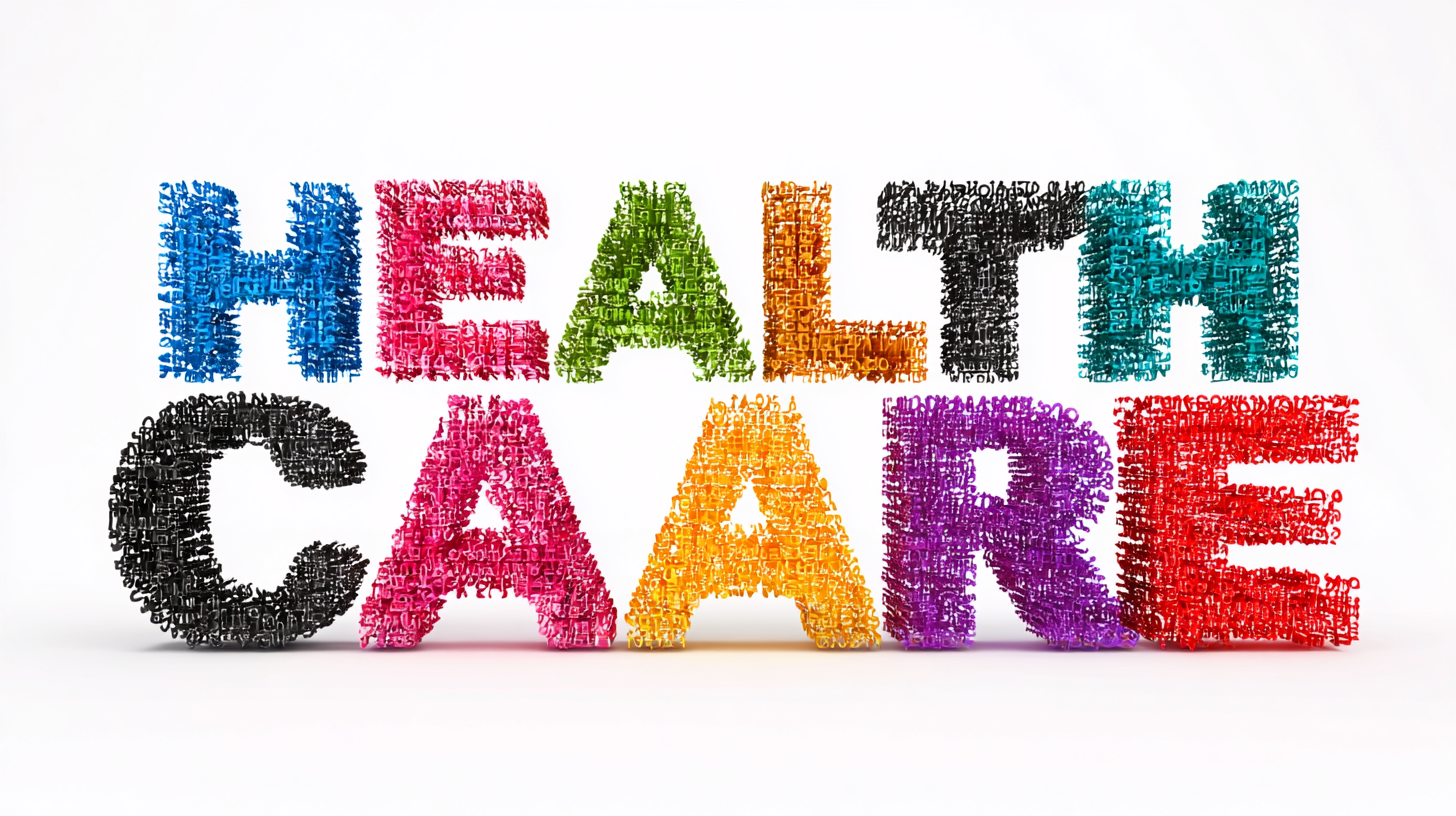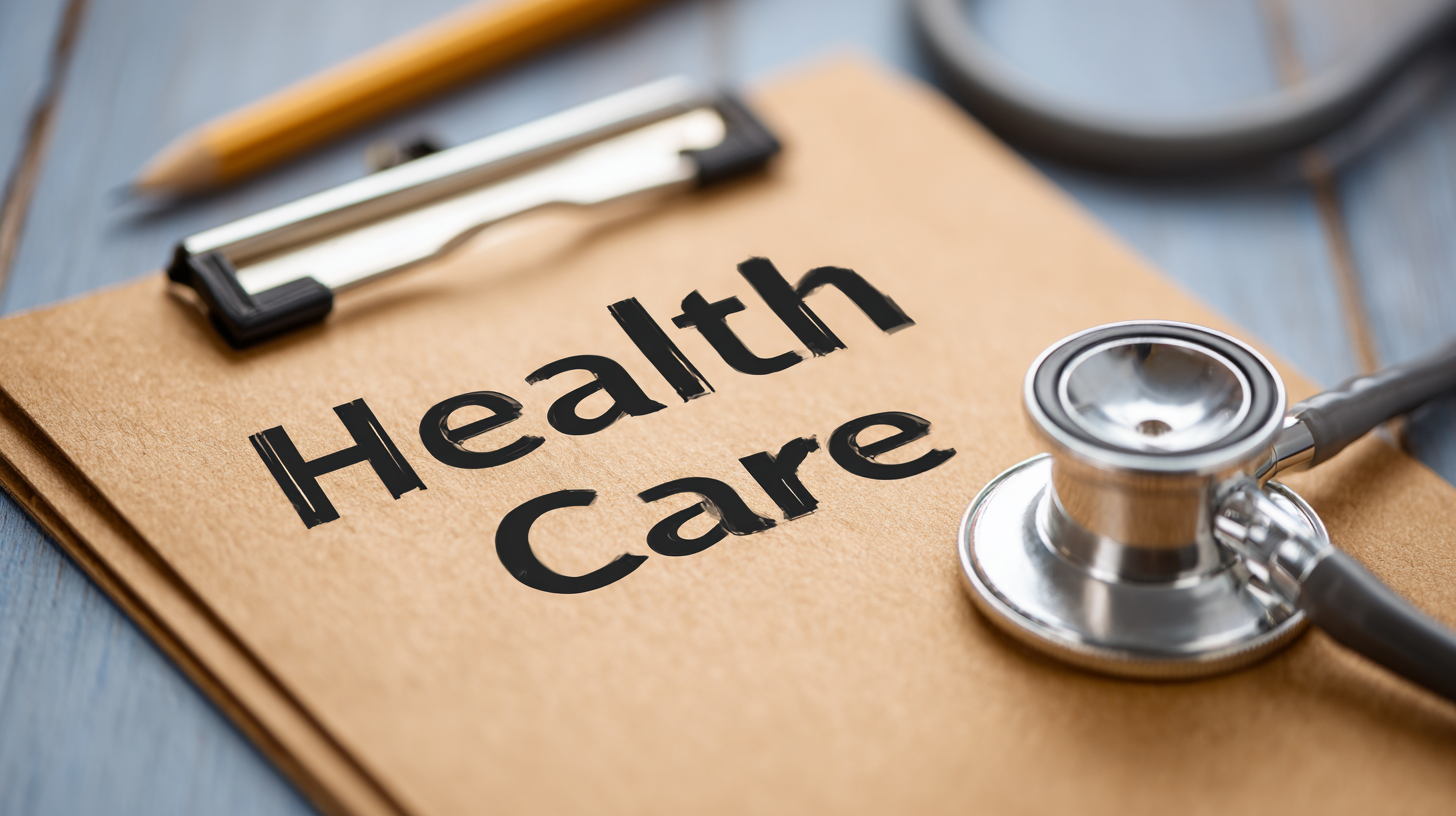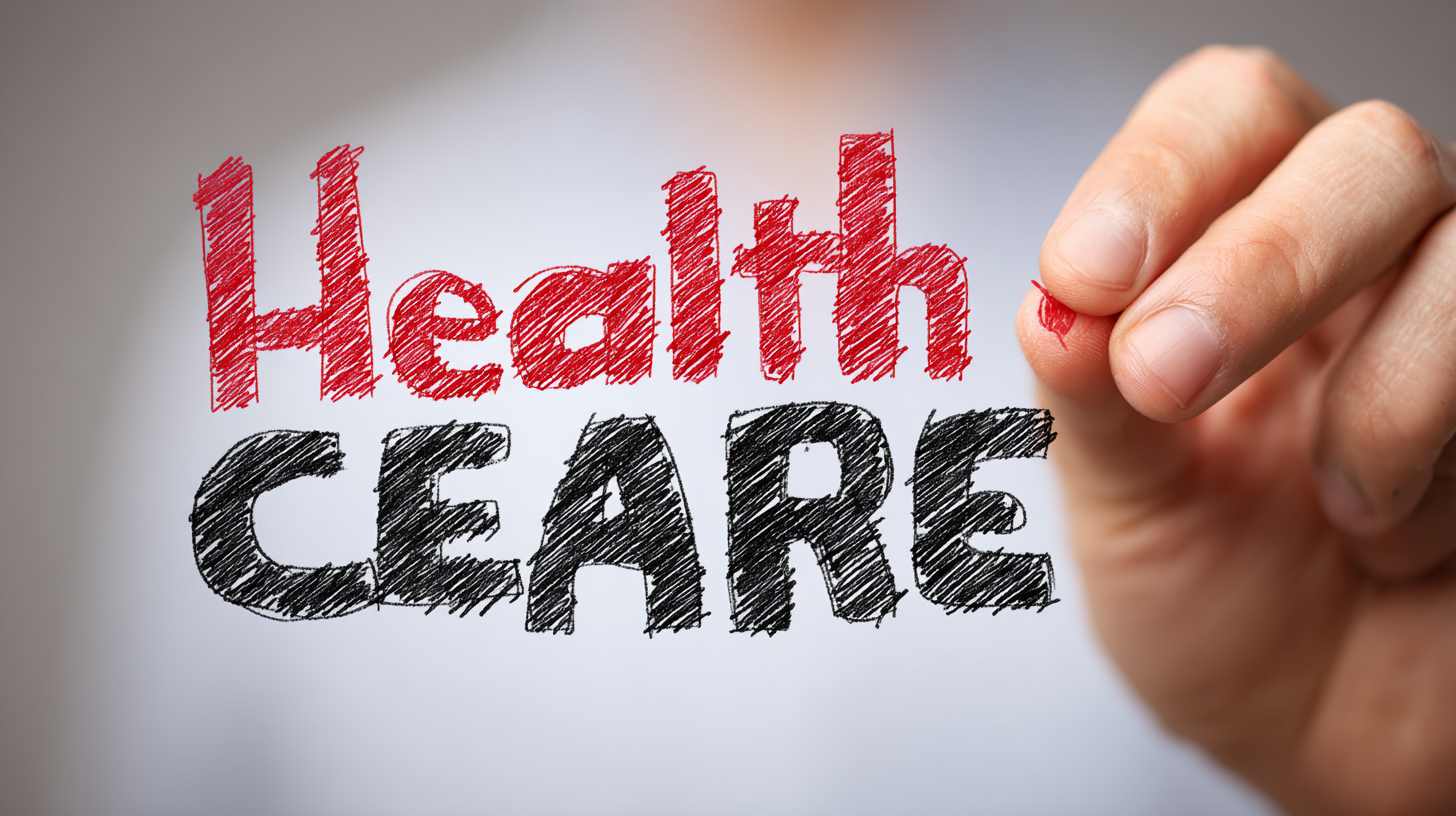Blog
7 Ways Best Health Care Solutions Can Transform Your Life
In the rapidly evolving landscape of Health Care, technological advancements are set to redefine how we approach wellness and medical services in the coming years. According to a report by Accenture, it is estimated that by 2025, up to 30% of medical consultations are expected to be conducted via telehealth platforms, fundamentally transforming patient experiences and access to care. Innovations such as artificial intelligence, wearable health technology, and personalized medicine are not only enhancing treatment options but also empowering individuals to take charge of their health. As more people seek efficient and effective solutions, understanding these trends will be crucial for maximizing the benefits that Health Care technologies can offer. This blog explores seven pivotal ways in which the best health care solutions can transform your life, positioning you at the forefront of this exciting transformation.

Understanding the Importance of Quality Health Care Solutions in Daily Life
 Quality health care solutions play a crucial role in enhancing our daily lives, influencing our overall well-being and longevity. According to the World Health Organization, access to effective health care can significantly reduce preventable diseases, increasing life expectancy by an average of 20 years in developing countries. This emphasizes the profound impact that quality health services have on health outcomes. Patients with access to comprehensive health care are more likely to receive timely interventions, leading to better management of chronic conditions such as diabetes and heart disease, which affect millions globally.
Quality health care solutions play a crucial role in enhancing our daily lives, influencing our overall well-being and longevity. According to the World Health Organization, access to effective health care can significantly reduce preventable diseases, increasing life expectancy by an average of 20 years in developing countries. This emphasizes the profound impact that quality health services have on health outcomes. Patients with access to comprehensive health care are more likely to receive timely interventions, leading to better management of chronic conditions such as diabetes and heart disease, which affect millions globally.
Moreover, research from the National Institutes of Health indicates that engaging health care solutions tailored to patient needs can improve adherence to treatment plans by up to 75%. Personalized care approaches not only foster better communication between providers and patients but also empower individuals to take charge of their health. As we prioritize quality health care solutions, we not only manage illnesses more effectively but also enhance our overall quality of life, paving the way for healthier, happier communities.
Comparing Traditional Health Care vs. Innovative Health Care Solutions
In today’s rapidly evolving health landscape, the comparison between traditional health care and innovative health care solutions highlights a significant shift in how individuals experience care. Traditional health care often relies on reactive responses to illness, with long waiting times for appointments and a one-size-fits-all approach. This model can lead to frustration and a fragmented care experience, leaving patients feeling disconnected from their health management. While it has its merits, such as established protocols and widespread accessibility, it frequently falls short in addressing individual patient needs and preferences.
In contrast, innovative health care solutions emphasize personalized and proactive care. Through telemedicine, wearable health technology, and data analytics, patients gain timely access to their health information and professional guidance. These advancements empower individuals to take charge of their health by facilitating regular check-ups and preventive measures, leading to timely interventions that can avoid serious health issues. Moreover, innovative solutions often promote holistic health management, integrating mental, emotional, and physical health considerations into one cohesive plan. As a result, patients experience not just improved health outcomes, but also a more engaging and fulfilling relationship with their healthcare journey.

How Preventive Care Services Can Enhance Your Overall Well-Being
Preventive care services play a pivotal role in enhancing overall well-being, addressing health issues before they develop into serious conditions. According to the Centers for Disease Control and Prevention (CDC), preventive care can lead to a 30% reduction in the risk of chronic diseases, such as diabetes and heart disease. This highlights the importance of routine screenings, vaccinations, and lifestyle counseling as essential components of maintaining health.
Tips for maximizing the benefits of preventive care include scheduling annual check-ups to stay on top of your health metrics, engaging in physical activities regularly, and adopting a balanced diet. For instance, the American Heart Association notes that a diet rich in fruits, vegetables, and whole grains can lower the risk of cardiovascular diseases by up to 30%.
Additionally, staying informed about the vaccinations and screenings recommended for your age group can be crucial. The U.S. Preventive Services Task Force recommends that adults get screened for conditions like high blood pressure, high cholesterol, and certain cancers, which can dramatically increase the likelihood of early detection and successful treatment. Proactively engaging in preventive care not only improves individual health outcomes but also contributes to a healthier community overall.
Impact of Preventive Care Services on Health Outcomes
Evaluating Mental Health Support Options for Comprehensive Care
Mental health plays a crucial role in overall well-being, yet many people lack access to adequate support. According to the National Institute of Mental Health, nearly one in five adults in the U.S. experiences mental illness each year, highlighting the urgent need for effective care options. Integrating mental health support into comprehensive health care solutions can dramatically improve patient outcomes and quality of life. For instance, studies show that patients who receive coordinated care, which includes mental health services, show a 20-30% improvement in their overall health and satisfaction with care.
When considering mental health support options, it’s important to evaluate different types of therapies and programs available. Teletherapy has emerged as a flexible and accessible option, especially for individuals in remote areas. Reports suggest that teletherapy can reduce treatment dropout rates by nearly 30%, making it a viable choice for many. Meanwhile, community-based programs also offer valuable resources and can foster social connections, which are essential for mental health.
**Tip:** Look for healthcare solutions that offer integrated care models, combining mental health services with primary medical care to ensure you receive holistic support.
Another effective approach is peer support groups, which can provide emotional comfort and shared experiences that promote healing. Engaging with others who understand your journey can create a sense of belonging while enhancing resilience against mental health challenges.
**Tip:** Explore local or online peer support options to complement your professional treatment plan, as they can help reinforce techniques learned in therapy.
The Role of Technology in Revolutionizing Health Care Access and Efficiency
The integration of technology in health care has the potential to transform access and efficiency significantly. According to a report by the World Health Organization, digital health solutions could reduce healthcare delivery costs by up to 25%, allowing more resources to be allocated toward patient care. Telehealth services, for instance, have seen a rise of over 154% in usage during the past few years, drastically improving access for patients in remote areas. This shift is not merely a trend; it’s a necessary evolution for a more inclusive health care system.
Tips for maximizing your experience with telehealth include ensuring you have a reliable internet connection and preparing any questions you may have in advance. Additionally, utilizing apps for monitoring health metrics can enhance communication with your healthcare provider, leading to more personalized care.
Moreover, the advent of artificial intelligence in diagnostics has shown promise in reducing the time to diagnosis by up to 50%, significantly enhancing care delivery. The use of AI can streamline administrative processes, allowing healthcare professionals to spend more time focusing on patient care rather than paperwork. Adapting to these innovations can lead to a more responsive and efficient healthcare system tailored to individual needs.
7 Ways Best Health Care Solutions Can Transform Your Life
| Method | Description | Impact on Access | Efficiency Improvement |
|---|---|---|---|
| Telemedicine | Remote consultations via video calls | Increased access to specialists | Reduced travel time for patients |
| Mobile Health Apps | Apps for monitoring health and wellness | Promotes self-management of health | Streamlined health data tracking |
| Wearable Technology | Devices that track health metrics | Continuous health monitoring | Real-time data for better decision making |
| Electronic Health Records | Digital records for patient information | Improved access to patient history | Faster information retrieval |
| Artificial Intelligence | AI for diagnostics and predictive analytics | Enhanced diagnosis accuracy | Automated administrative tasks |
| Online Health Communities | Forums for patient support and information | Wider access to shared experiences | Facilitates quicker information exchange |
| Data Analytics | Analysis of health data for insights | Identifies health trends and needs | Improves resource allocation |